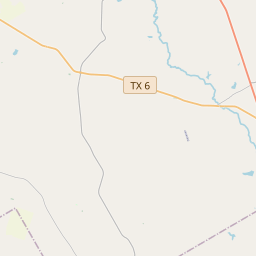John Rankin Alford
Historical marker location:






John Rankin Alford was born in Tennessee in 1834, and he arrived in Hamilton County, Texas, in 1860 with his wife Martha Ann (Malone). The couple settled on Honey Creek and Alford began selling goods that he had brought with him by wagon and also engaged in the cattle business. The small settlement along Honey Creek was on the mail route between Meridian and Brownwood, and as the community grew, a petition was made for the establishment of a post office at the site; Alford selected the name Hico, after his childhood home of Hico, Calloway County, Kentucky, and served as the young town’s first postmaster.
After serving in the second frontier regiment of Texas State Troops during the Civil War and surviving the battle of Dove Creek, Alford became a physician by standing before an examining board of physicians in Meridian in 1875, and remained a doctor in good standing for the remainder of his life, practicing medicine well into his eighties. Alford married Lerona King in 1877 after the death of his first wife. He fathered fourteen children. Alford was a charter member of the Hico Masonic Lodge and was a founding member of the Hico Christian Church (Disciples of Christ). In 1880, when the railroad came to Hamilton County and the citizens of Hico chose to move the town to be adjacent to the rail line, Alford also relocated, and he established a drug store at the new townsite.
Alford remained in Hico for the rest of his life, and he died in his home on April 1, 1928. He is buried in the Hico Cemetery, surrounded by his family and generations of Hico citizens who recognize his dedication and contributions to the town of Hico and its people
As one of the most visible programs of the Texas Historical Commission (THC), historical markers commemorate diverse topics in Texas history, including: the history and architecture of houses, commercial and public buildings, religious congregations, and military sites; events that changed the course of local and state history; and individuals who have made lasting contributions to the state, community organizations, and businesses.
The Texas Rangers, a famous law enforcement agency, were first organized in 1835 to protect settlers from Native American attacks.
The county itself was formed in 1858 and named after James Hamilton Jr., a notable figure in Texas' fight for independence from Mexico. The first permanent settlement in the area was established around 1855 and became known as Hamilton, which later became the county seat. The early settlers primarily engaged in farming, ranching, and cotton production.
During the Civil War, many of Hamilton County's residents joined the Confederate Army to defend the Southern cause. The county suffered several attacks by Native American tribes aligned with the Union during the conflict. Following the war, the county gradually recovered, and the population began to grow with the introduction of new industries such as limestone quarrying and milling.
By the early 20th century, Hamilton County had become an established agricultural region, known for its cotton, corn, and cattle production. However, the Great Depression hit the area hard, causing economic decline and depopulation. In recent decades, the county has diversified its economy, incorporating sectors like manufacturing, education, and healthcare.
Today, Hamilton County is a vibrant community that combines its rich history with modern development. Visitors can explore historical landmarks, enjoy recreational activities in the surrounding natural beauty, and experience the warmth of its friendly residents. The county continues to thrive, attracting new residents and businesses while cherishing its deep-rooted heritage.
Hamilton County Timeline
This timeline provides a condensed summary of the historical journey of Hamilton County, Texas.
- 1853: Hamilton County is created as a new county in the state of Texas.
- 1858: The county seat is established in the town of Hamilton.
- 1872: The Fort Worth and Rio Grande Railway is built through Hamilton County.
- 1882: The first newspaper, called The Hamilton Herald, is published in Hamilton.
- 1902: Hamilton County Courthouse, the current courthouse, is completed.
- 1929: The Great Depression causes economic hardships for Hamilton County residents.
- 1948: The town of Evant experiences a devastating tornado, resulting in multiple casualties.
- 1956: Lake Proctor is constructed as a recreational reservoir in Hamilton County.
- 1996: The Texas Historical Commission designates the city of Hico as a Texas Main Street community.
- 2017: Hamilton County celebrates its 165th anniversary since its establishment.